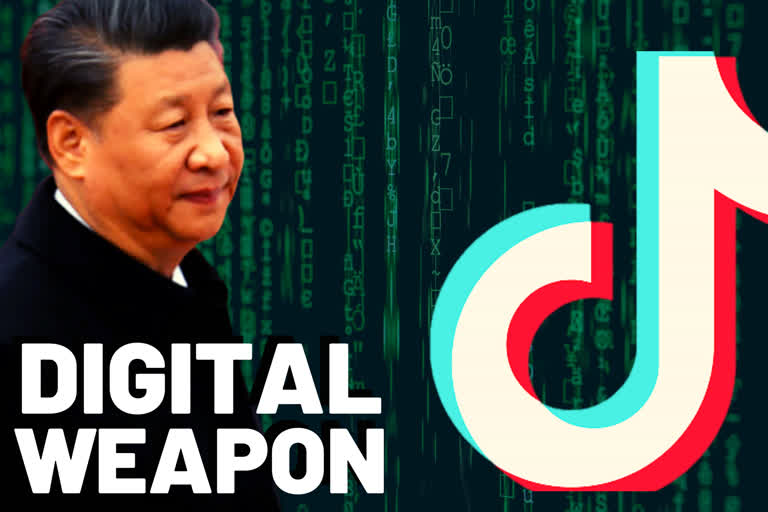Hyderabad: As India banned TikTok including the 59 Chinese apps, the call to restrict the lip-sync video platform in multiple countries intensified with leaders arguing that it spies users' data for Beijing to help the communist regime against its rivals.
Now leaders eye the app as a China's digital weapon, which surveillances its rival nations and penetrates digital sovereignty to harm other nations on a larger scale.
Since India banned 59 apps including TikTok, the US and Australia have also been considering to ban the app over privacy concerns.
Read also:TikTok and these 58 apps now banned in India
Recently, US Secretary of State Mike Pompeo said that Washington is "certainly looking" at banning Chinese social media apps, including TikTok. He warned Americans to be cautious in using TikTok, lest they want their private information "in the hands of the Chinese Communist Party".
Following New Delhi and Washington, several Australian legislators also proposed to ban TikTok as they too fear the app is being used by Beijing to collect users' data.
Read also:US 'looking at' banning TikTok, other Chinese apps: Pompeo
ByteDance, TikTok's Beijing based owner, constantly claimed that its data is stored in servers in the US and Singapore but it's not a difficult task for the communist regime to get access to the data, the South China Morning Post reported.
TikTok was launched in September 2016 as Douyin in China. After a year it was pushed as TikTok worldwide. Further, its parent company ByteDance acquired Musical.ly and its users were migrated to TikTok.
The highly popular apps' monthly activated users are estimated at 800 million and it was downloaded 738 million times in 2019.
Experts estimate that nearly 57% of TikTok's users are based in China.
In 2019, India served as the top market for the app with nearly 323 million downloads and analysts believe that the country's users spent nearly 38 minutes daily using the popular app.
ByteDance controls 23% of the Chinese digital app market and it became the world’s most highly-valued private startup, with a valuation of $78 billion after a SoftBank-led $3 billion investment round.
However, despite its major control over the market, multiple countries believe that the highly-popular video platform endangers millions of people's privacy and might boost China's cyber aggression in the future.
